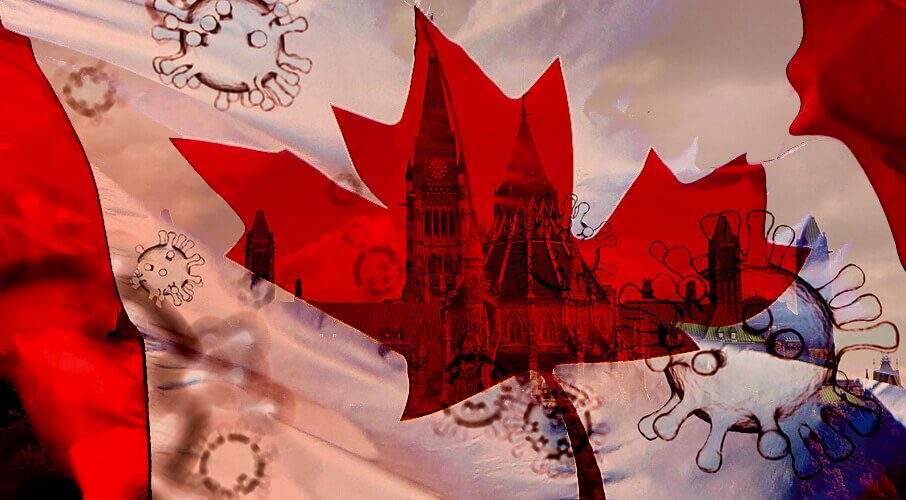 While nobody will feel that they’ve had good luck in the face of the pandemic, in Atlantic Canada our experiences have been far different than elsewhere, and our resilience in the face of trying circumstances has paid off, writes Richard Audas.
While nobody will feel that they’ve had good luck in the face of the pandemic, in Atlantic Canada our experiences have been far different than elsewhere, and our resilience in the face of trying circumstances has paid off, writes Richard Audas.
By Richard Audas, July 5, 2021
If we were to sum up what life’s been like since March 2020, one word comes to mind: miserable.
Few globally have entirely avoided the misery heaped upon us by the COVID-19 pandemic – sickness and deaths from the illness, lost jobs, massive government debts, and lockdowns — the distribution of this misery has varied significantly across countries and indeed, provinces.
To measure the extent of this suffering and to compare how different jurisdictions handled the pandemic, the Macdonald-Laurier Institute developed the COVID-19 Misery Index. We first looked at how Canada compares with 14 other similar countries (we rank 11th), and then how Canadian provinces compare with one another.
Here’s what we found.
While there’s little doubt that the pandemic has been a pretty miserable time for Atlantic Canadians, the data suggest it’s been a lot less miserable here than just about everywhere else in Canada. This success appears to be driven by some combination of acting quickly, a compliant public, no international flight arrivals, low population density and the plain luck of island geography.
The rates of disease and death from COVID-19 have been dramatically lower in Atlantic Canada compared to other provinces. In many cases it was ten to twenty times higher in Central and Western provinces. With lower rates of disease comes lower death rates from COVID-19 in Nova Scotia, New Brunswick and Newfoundland and Labrador, with Prince Edward Island not experiencing a single COVID-19 related death.
Another measure we follow is the rate of excess deaths which takes a broader look at the health impact of COVID-19 and the diversion of resources away from all other aspects of health care. For the most part, this never came to the region. Atlantic Canadian excess death rates were much lower than other Canadian provinces with the rates actually being negative in Prince Edward Island and Nova Scotia – suggesting that lockdowns and other health measures have resulted in fewer deaths than we would expect in a normal year.
A key feature of successful management of COVID-19 was aggressive testing, tracking and tracing. Provinces that limited and reduced caseloads have been able to respond quickly when new cases emerge, further limiting contagion. On a test per case basis, Atlantic Canadian provinces tested at a rate eight to ten times higher than other provinces, and this capacity was critical in keeping the disease mostly at bay. With relatively low caseloads and a best-in-class testing regime, public health restrictions have been far less intrusive in Atlantic Canada.
While there have been periods of higher stringency (more strict lockdowns and quarantines), when outbreaks have occurred, life in Atlantic Canada has been far more normal. One area where Atlantic Canada is lagged behind, albeit only by a small margin, is in vaccinations. With COVID-19 being better controlled compared to elsewhere, this has likely reduced the urgency to rush vaccinations.
Unemployment caused by lockdowns and staggering economies has been slow to return to pre-pandemic levels, and the massive increase in provincial public debt is a significant concern. But the economic misery was least severe in Nova Scotia, New Brunswick and Prince Edward Island than elsewhere. Newfoundland and Labrador has had it worse, facing stronger economic headwinds generally, and piling on more public debt than other Atlantic province.
So, how about New Brunswick? Disease Misery was worst in New Brunswick compared to the rest of Atlantic Canada, but remained far lower than the rest of Canada. New Brunswick suffered the smallest economic blow of all provinces, but it has had among the least efficient overall responses to the pandemic. Overall, the province scores a very respectable 3rd place out of 10 provinces.
We have no doubt that COVID-19 has been a major disruption to all. The impact of the disease and the fear it has created, the limits to our personal freedoms imposed and the economic fallout will be with us for some time. And while nobody will feel that they’ve had good luck in the face of the pandemic, in Atlantic Canada our experiences have been far different than elsewhere, and our resilience in the face of trying circumstances has paid off.
Professor Richard Audas, Faculty of Medicine, Memorial University of Newfoundland and Labrador. Senior Fellow, Macdonald-Laurier Institute





